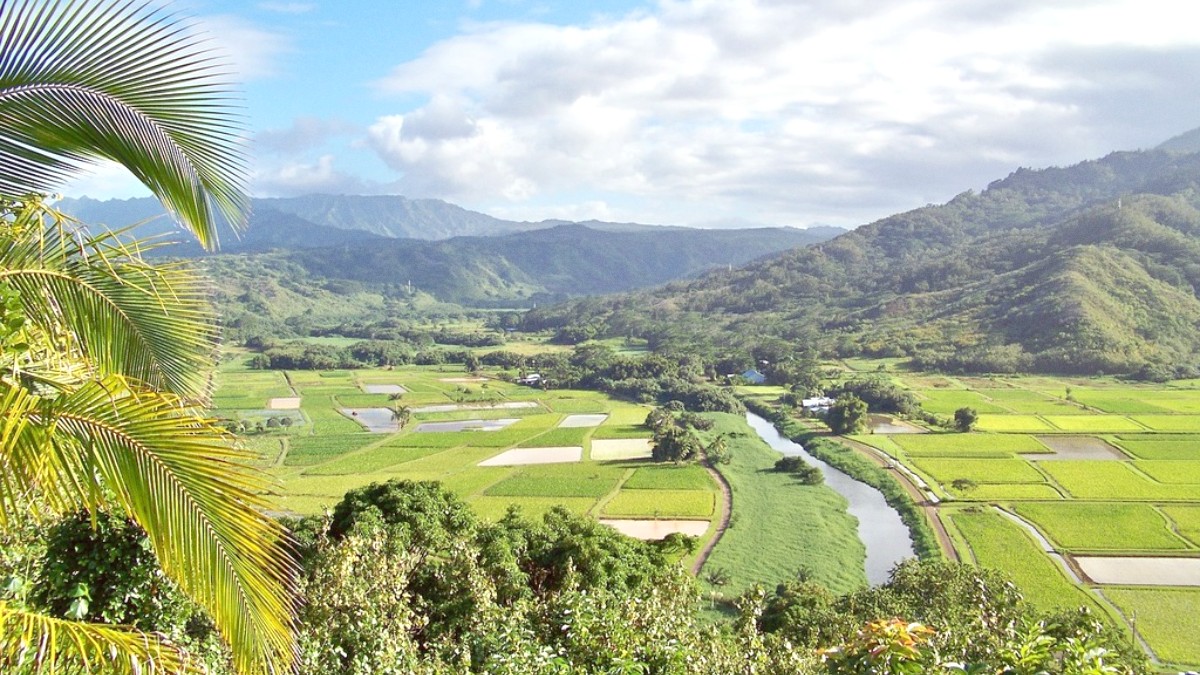
Hawaii, USA
Kauai's tropical climate suggests lightweight, breathable, and quick-drying fabrics. Plan for warm days and comfortable evenings. Pack lightweight shirts (cotton, linen, moisture-wicking synthetics), shorts, skirts, and dresses for daytime. A Light jacket or sweater may be needed for evenings, especially on the North Shore or in air-conditioned interiors. For the rainy season (November-March), a compact, packable Waterproof rain jacket is advisable.
Your footwear choices are important for comfort and safety across Kauai's varied terrain.
Pack light, quick-drying fabrics. Layers are good, especially for evenings and visits to different parts of the island.
Bring a wide-brimmed hat, sunglasses, and UV-protective clothing. Reef-safe sunscreen is a must.
Include options for both casual beach wear and sturdy hiking trails.
Gathering your required travel documents before you leave saves time and aids in smooth travel. Keep them organized and accessible.
The United States uses Type A and B plugs (120V at 60Hz). If traveling from the US or Canada, no power adapter or Voltage converter is needed. For others, a Universal travel adapter is required. Check if your devices support 120V. Most modern electronics are dual-voltage. Verify your mobile phone is unlocked and compatible with US networks (AT&T, T-Mobile, Verizon). Purchase local SIM cards or use eSIM options for local plans.
Kauai's stunning landscapes benefit from good camera equipment. A waterproof or water-resistant camera, like a GoPro HERO12 Black, excels for ocean activities, waterfalls, and rainy hikes. A camera with good low-light performance is useful for sunsets and night photography. Bring extra batteries and memory cards. B&H Photo is a good resource for camera gear. Portable chargers and Power banks are important for long days of exploring.
Utilize services like Google Drive, Dropbox, or iCloud for backing up photos and copies of important documents. This safeguards your memories and data.
Download offline maps to your phone before you arrive. This saves data and works even if you lose signal in remote areas.
A High-capacity power bank ensures your phone and other devices remain charged for navigation, photos, and communication.
A well-stocked health and wellness kit provides peace of mind. For your destination-specific First aid kit, include various sizes of Band-Aids, antiseptic wipes, sterile gauze pads, medical tape, antihistamines, Hydrocortisone cream, antibiotic ointment, Ibuprofen or Acetaminophen, Anti-diarrhea medication, and tweezers.
Protect yourself from the sun and insects. Mosquitoes are present, especially in lush, wet areas or during dawn and dusk. Look for Insect repellent with DEET or picaridin. A Travel-size insect repellent with DEET is helpful. Reef-safe sunscreen is mandatory in Hawaii to protect coral reefs. Choose sunscreens free of oxybenzone and octinoxate. A Reef-safe mineral sunscreen is required. Protect your lips with Lip balm with SPF. A Wide-brimmed hat and UV-protective clothing (e.g., a UV-protective shirt) offer additional protection.
For hiking, a comfortable Daypack, ideally with a Hydration reservoir, is useful for water and snacks. Trekking poles are good for muddy or steep trails, especially on the North Shore or in Waimea Canyon.
For snorkeling, masks, snorkels, and fins can be rented, but bringing your own Snorkel mask ensures proper fit and hygiene. A Full-face snorkeling mask is an option. An Underwater camera (or phone housing) for capturing marine life.
For beach days, a lightweight and quick-drying Beach towel (Microfiber travel towel). A Waterproof dry bag for protecting electronics. If camping, bring lightweight Camping gear, including a tent and Sleeping bag.
Comfort items for transportation include a Travel neck pillow for long flights, and Eye mask and earplugs for rest. Security items like small, TSA-approved luggage locks for checked bags. A Money belt or RFID-blocking wallet for securing passports, credit cards, and cash, especially when exploring.
Some items are particularly useful for Kauai's environment. Lightweight Binoculars aid in observing Nene geese, seabirds at Kilauea Lighthouse, or humpback whales (seasonal). After-Sun Lotion/Aloe Vera is soothing for unexpected sunburn. Certain items are difficult or expensive to purchase locally. Reef-safe sunscreen can be more expensive and limited in selection, so buy it before you arrive. Insect repellent may also be pricier on the island. Bring your preferred brand from home.
Reduces plastic waste.
For groceries and souvenirs.
Protects coral reefs.
Minimizes single-use plastic.
Pack a small, comprehensive first-aid kit. Include reef-safe sunscreen and insect repellent. Consider renting large items like surfboards. Bring your personal snorkel gear for comfort and hygiene.
Make digital copies of all important documents. Store them securely online and in a separate email account as a backup.